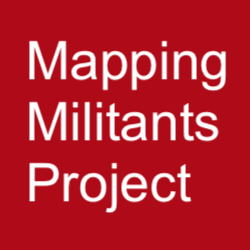Countering Far-Right Anti-Government Extremism in the United States
This report summarizes and assesses open-source evidence about transnational ties between violent extremist groups based in the United States and foreign state and non-state actors. Drawing from the detailed group profiles developed by the Mapping Militants Project, we find that the violent RMVE and AGAAVE universe is characterized by unstructured connections. U.S.-based RMVE and AGAAVE groups do not engage in widespread or systematic cooperation with foreign state and non-state actors. Rather, the connections that do exist across national borders are episodic, informal, fluid, and largely undirected. While we expect that these ties will not result in coordinated mass-casualty attacks in the near term, transnational relationships clearly have the potential to inspire acts of domestic terrorism by amplifying dangerous ideologies and spreading tactics and strategies to commit violence.
Countering Far-Right Anti-Government Extremism in the United States
In this article, we explore how the organisational and tactical characteristics of the far-right anti-government movement in the United States enable it to thrive despite the dangers it poses to the public. We argue that its deep-seated ideological roots, fluid organisational structure, and mix of violent and nonviolent tactics make the movement difficult for federal and state authorities to proscribe, prosecute, and ultimately eliminate.
An Introduction to the Mapping Militants Global Far-Right Extremism Map
This report describes how Mapping Militants Project researchers approached studying and mapping the global far-right. It discusses the global far-right extremism "map" and provides a brief history of the violent far-right in the United States. Suggested citation: Lokay, Andrew and Kaitlyn Robinson. “An Introduction to the Mapping Militants Global Far-Right Extremism Map.” 2022. NCITE: Omaha, NE (April).
Fighting the Hydra: Combatting Vulnerabilities in Online Leaderless Resistance Networks
Why do contemporary Racially-Motivated Violent Extremist (RMVE) movements champion “leaderless resistance,” and how can practitioners combat this organizational strategy? We deconstruct the movement’s operational activities and identify key vulnerabilities to undercut the movement’s resilience and growth. Suggested citation: Malone, Iris, Lauren Blasco, and Kaitlyn Robinson. “Fighting the Hydra: Combatting Vulnerabilities in Leaderless Resistance Networks.” 2022. NCITE: Omaha, NE (March).
The Oath Keepers
Oath Keepers (OK) is a prominent organization within the militia/patriot movement in the United States. This article, published in a special edition of Dynamics of Asymmetric Conflict, discusses the group's organizational development, main objectives, and connections with other far-right groups. Suggested citation: Lokay, Andrew, Kaitlyn Robinson, and Martha Crenshaw. "The Oath Keepers." Dynamics of Asymmetric Conflict 14, no. 2 (2021).
